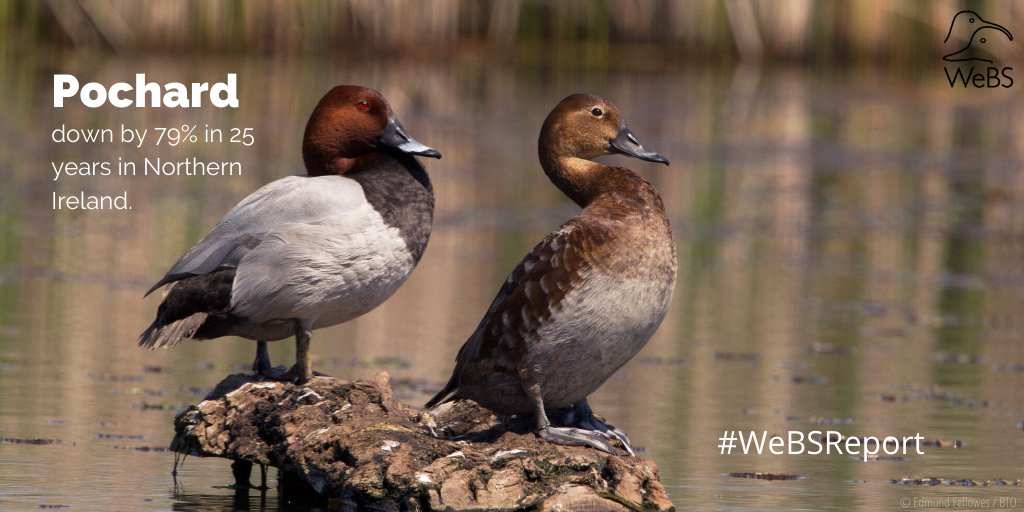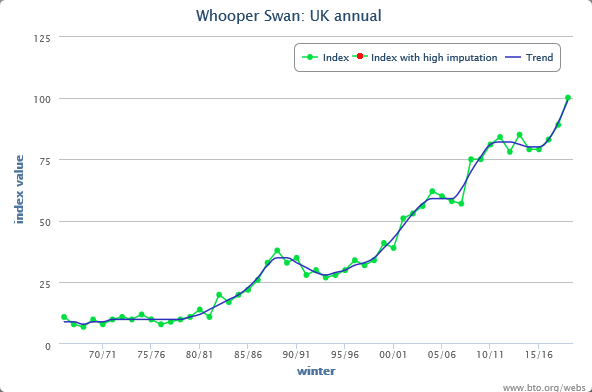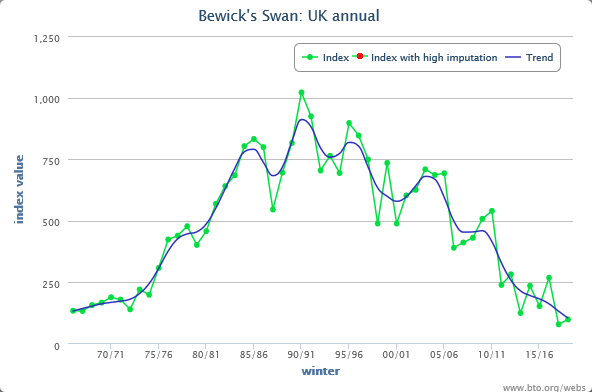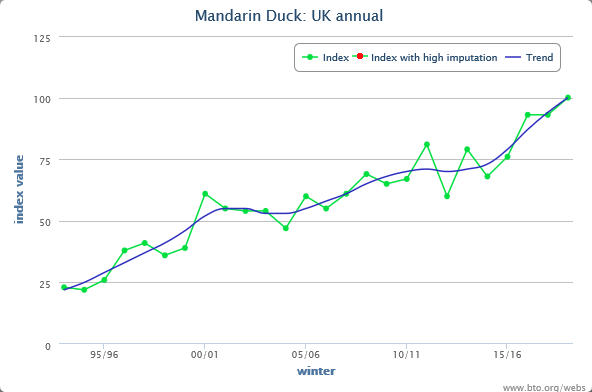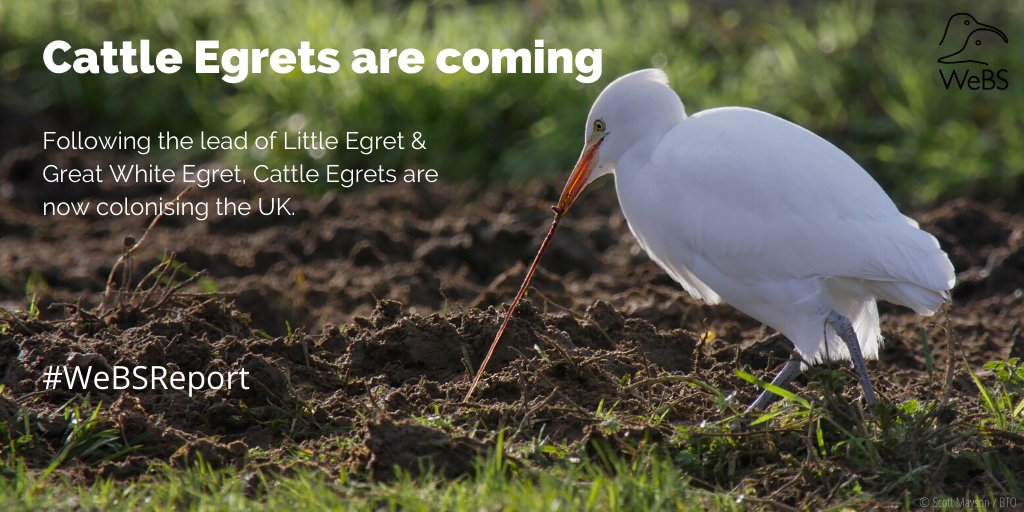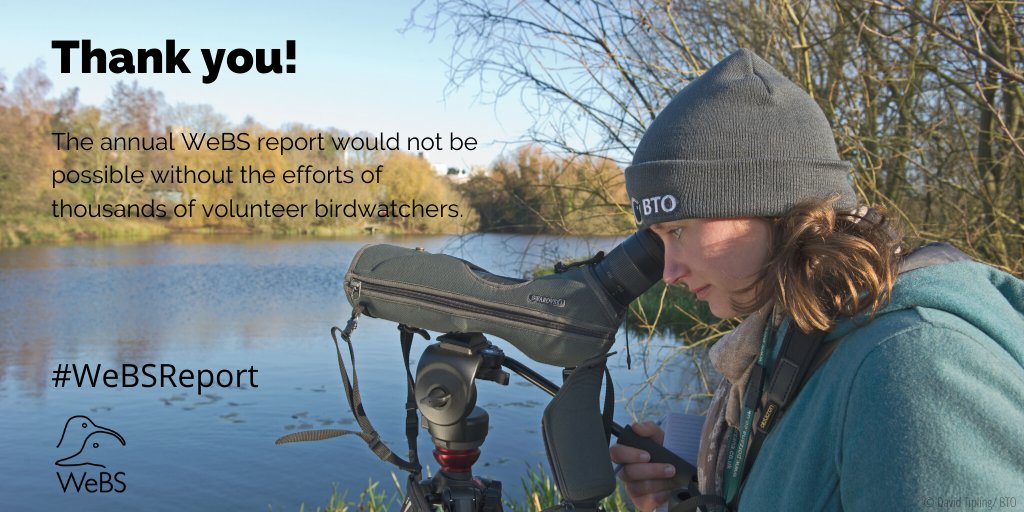Today& #39;s Waterbirds in the UK 2018/19 report underlines the importance of protected areas for our waterbirds. They are a haven for our most vulnerable species, but even here numbers are in decline: http://www.bto.org/webs-annual-report">https://www.bto.org/webs-annu... #WeBSReport @JNCC_UK @RSPBScience @WWTconservation @_BTO
Pochard are declining across the UK and are increasingly reliant on protected areas. In Northern Ireland, almost no Pochard now occur outside protected areas. http://www.bto.org/webs-annual-report">https://www.bto.org/webs-annu... #WeBSReport @JNCC_UK @RSPBScience @WWTconservation @_BTO
A tale of two swans - today’s WeBS report shows that the Whooper Swan has index again reached its highest ever value, while Bewick’s Swan remains at historically low levels. http://www.bto.org/webs-annual-report">https://www.bto.org/webs-annu... #WeBSReport @JNCC_UK @RSPBScience @WWTconservation @_BTO
Non-native species continue to do well. 2018/19 was a record winter for Mandarin counts in the UK, Canada Goose in Scotland and the second highest winter for Egyptian Goose in England. http://www.bto.org/webs-annual-report">https://www.bto.org/webs-annu... #WeBSReport @JNCC_UK @RSPBScience @WWTconservation @_BTO
Cattle Egret numbers are growing fast in the UK - up from a maximum count of two in winter 2014/15 to a maximum of 158 in winter 2018/19: http://www.bto.org/webs-annual-report">https://www.bto.org/webs-annu... #WeBSReport #ClimateChange @JNCC_UK @RSPBScience @WWTconservation @_BTO
As always, this year’s WeBS report would not have been possible without the priceless efforts of 3,290 volunteers, making 39,617 count visits during winter 2018/19. THANK YOU! http://www.bto.org/webs-annual-report">https://www.bto.org/webs-annu... #WeBSreport #CitizenScience @JNCC_UK @RSPBScience @WWTconservation @_BTO

 Read on Twitter
Read on Twitter
